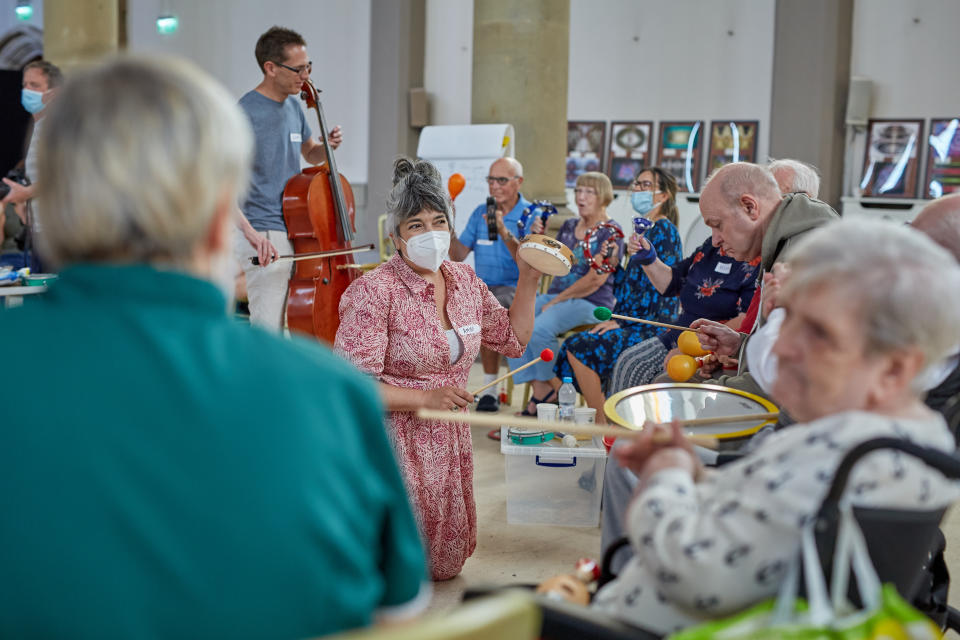Impact of music on people with dementia to be analysed in three-year project
A musical “lifeline” for people with dementia could improve lives and reduce pressure on the NHS, according to organisers of a project which will analyse the effects of the therapy.
More than £1 million has been committed to making Greater Manchester the UK’s first centre of excellence for music and dementia, with a three-year programme, starting in October, delivering regular music cafes for more than 1,000 people living with dementia in the region.
Music therapy programmes will be delivered in each of Greater Manchester’s 10 boroughs by the Manchester Camerata orchestra and the Alzheimer’s Society, who will work with the University of Manchester and the NHS on analysing the impact the sessions have.
It is hoped the therapy could reduce the need for health and care services and improve people’s quality of life.

Bob Riley, chief executive of Manchester Camerata, said it had been running music cafes for more than 10 years but becoming a centre of national excellence would enable them to reach more people, measure the impact and train an “army” of people to understand the basics of using music for people with dementia.
Mr Riley said seeing the reaction from people with dementia to their music cafes could be “magic” and allowed them to “find joy”.
He told the PA news agency: “Why on earth wouldn’t we want to bring joy? It could save costs on medication, improve lives, people even say it has saved their lives. They tell us it is a lifeline.”
He added: “It is just incredible to see what music can do in that moment.”
Funding for the scheme has been committed by Mayor of Greater Manchester Andy Burnham, NHS Greater Manchester and the National Academy for Social Prescribing’s Power of Music Fund.
Mr Burnham said: “This project will provide life-changing support to people with dementia and their carers in our 10 boroughs – support that is grounded in our communities and delivered with a real expert focus.
“It will also generate groundbreaking research that will influence health and care policy across the country while directly improving lives across Greater Manchester.”
Three-hundred “music champions” will be trained to deliver the music cafes.
Charlotte Osborn-Forde, chief executive of the National Academy for Social Prescribing, said: “Through the centre of excellence, we aim to demonstrate how prescribing music to people living with dementia can improve quality of life, reduce isolation, and lessen the need for medication, hospital admissions and GP appointments.
“We were delighted to choose Greater Manchester after an outstanding bid. This project will provide a lifeline to people living with dementia in Manchester, but also provide new evidence and a model that can be replicated across the country.”
Dara de Burca, director of dementia support and partnerships at Alzheimer’s Society, said the organisation was “delighted” to be involved.
She said: “Music memory is often retained when other memories are lost. Alzheimer’s Society’s experience of delivering Singing for the Brain sessions has demonstrated the incredible therapeutic power of music for people living with dementia.
“It creates powerful connections, reduces social isolation, and improves wellbeing and mood.”

